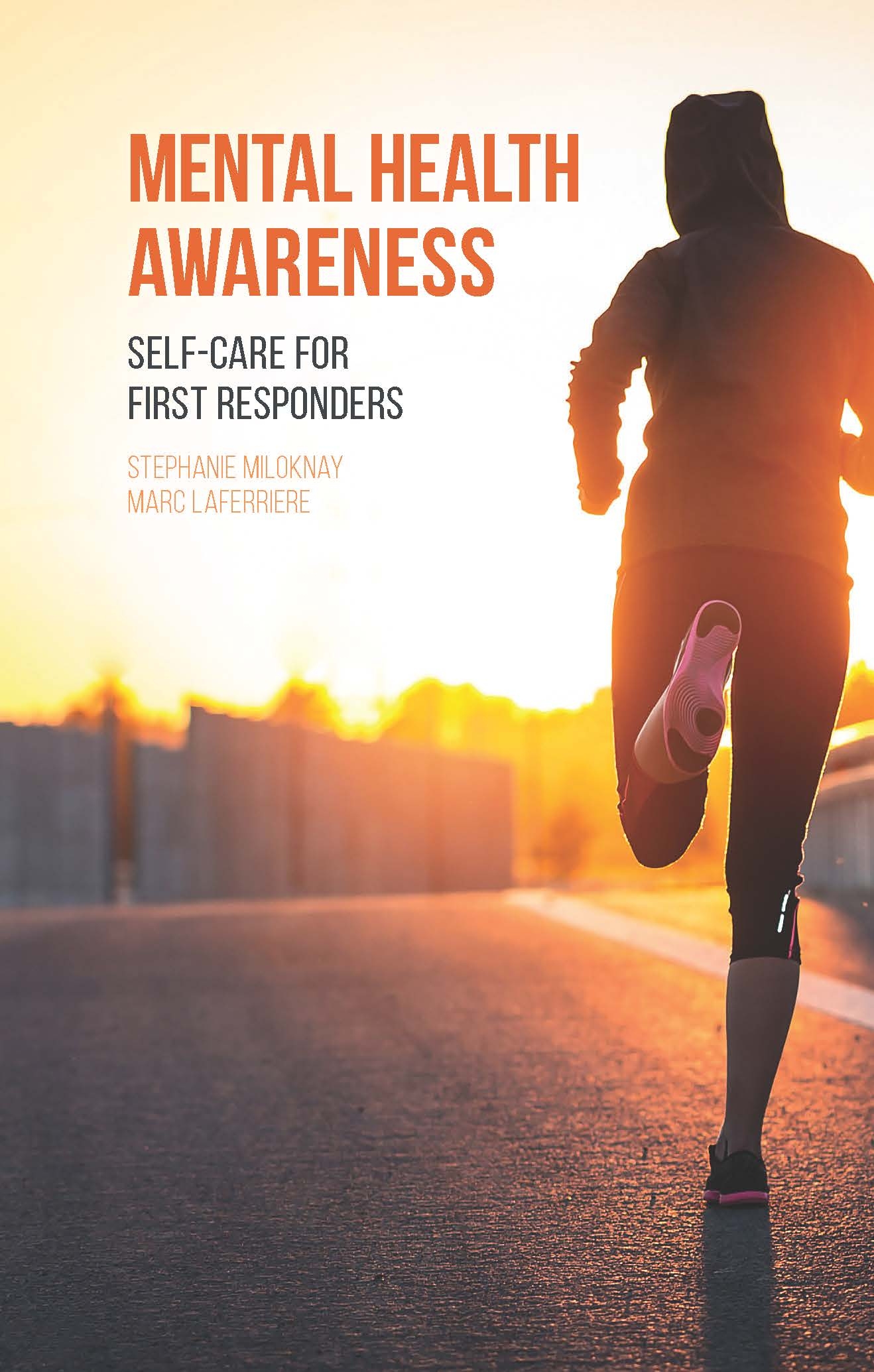
Features
Off the Shelf
Opinion
Mental Health Awareness: Self-Care for First Responders by Stephanie Miloknay and Marc Laferriere
Mental Health Awareness: Self-Care for First Responders
By Stephanie Miloknay and Marc Laferriere; 2017, 128 pages
ISBN: 978-1-77255-252-2
January 29, 2018 By Peter Collins

The cost of caring can be high. Stress has the potential to affect one’s physical and mental health. As an operational forensic psychiatrist with law enforcement, and as a retired military psychiatrist who has served in war zones, I am acutely aware that first responders are at a higher risk for stress-related illness. Police officers, for example, have an incidence of duty-related stress injury anywhere from 8 to 32 per cent higher than non-first responders. Even if first responders don’t meet the full diagnostic criteria for post-traumatic stress disorder (PTSD), sub-threshold PTSD can also be debilitating.
Stephanie Miloknay and Marc Laferriere understand the unique challenges faced by first responders and have written a concise manual that is appropriate for both the novice and the experienced first responder. In addition to addressing the impact of abnormal stress, they offer practical suggestions for physical and psychological self-care in response to stressful events, including a concise identification and intervention guide. This handbook also contains a checklist for physical and emotional well-being, as well as a place to track personal self-care goals and outcomes.
This publication is not just theoretical — Miloknay is a retired sergeant from the Halton Regional Police Service, a social worker and a professor at Mohawk College in Hamilton, Ont. Laferriere is a professor of Justice Studies at Mohawk College and an award-winning educator in the area of mental health, systems change and community development.
In my professional opinion, Miloknay and Laferriere’s Mental Health Awareness: Self-Care for First Responders should be the “go-to” text found in the duty bags of all emergency professionals. It is also a valuable instructional manual to be used in the classroom training of firefighters, EMS and law enforcement personnel.
– Peter I. Collins, operational forensic psychiatrist, OPP
Print this page